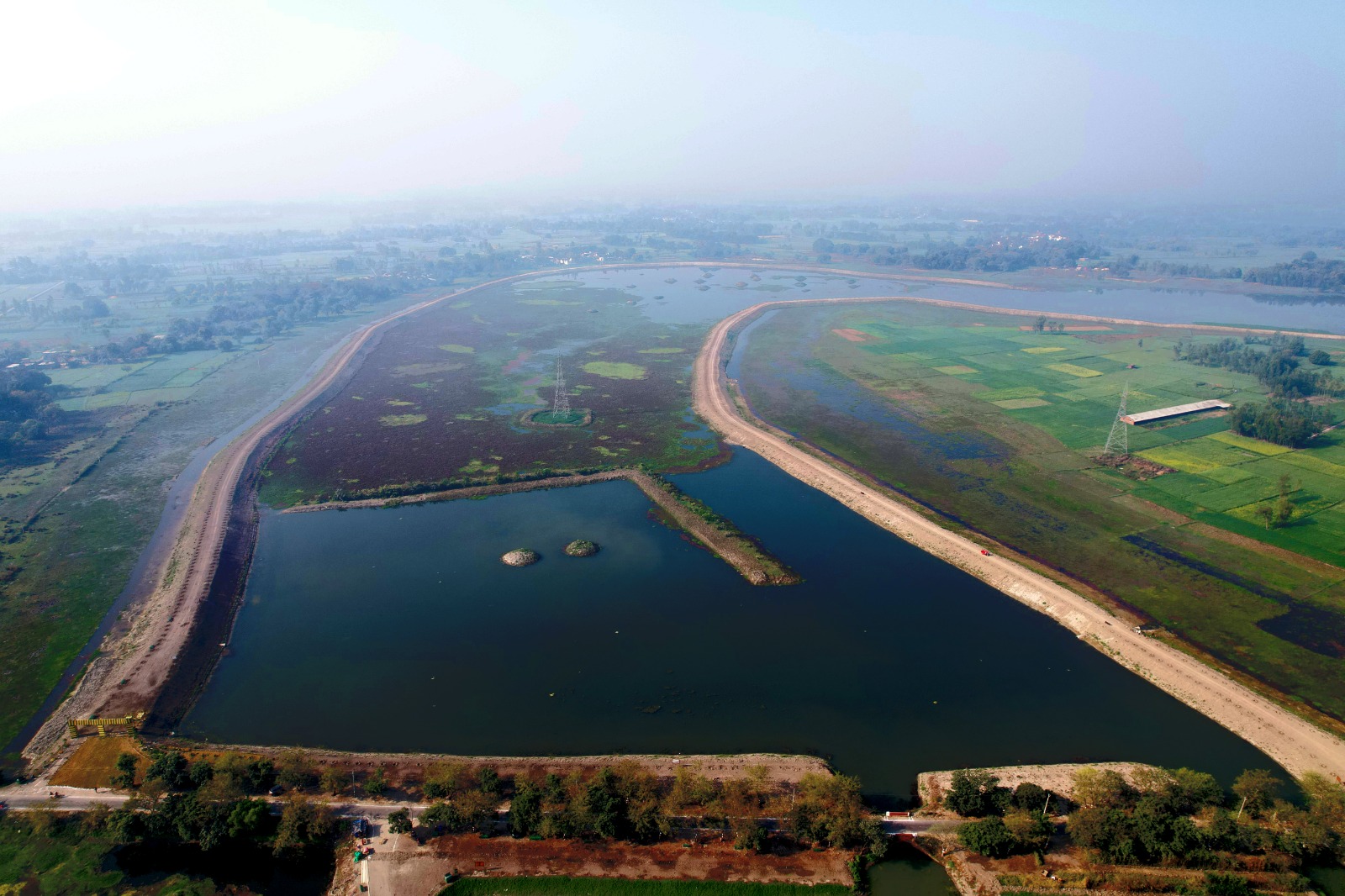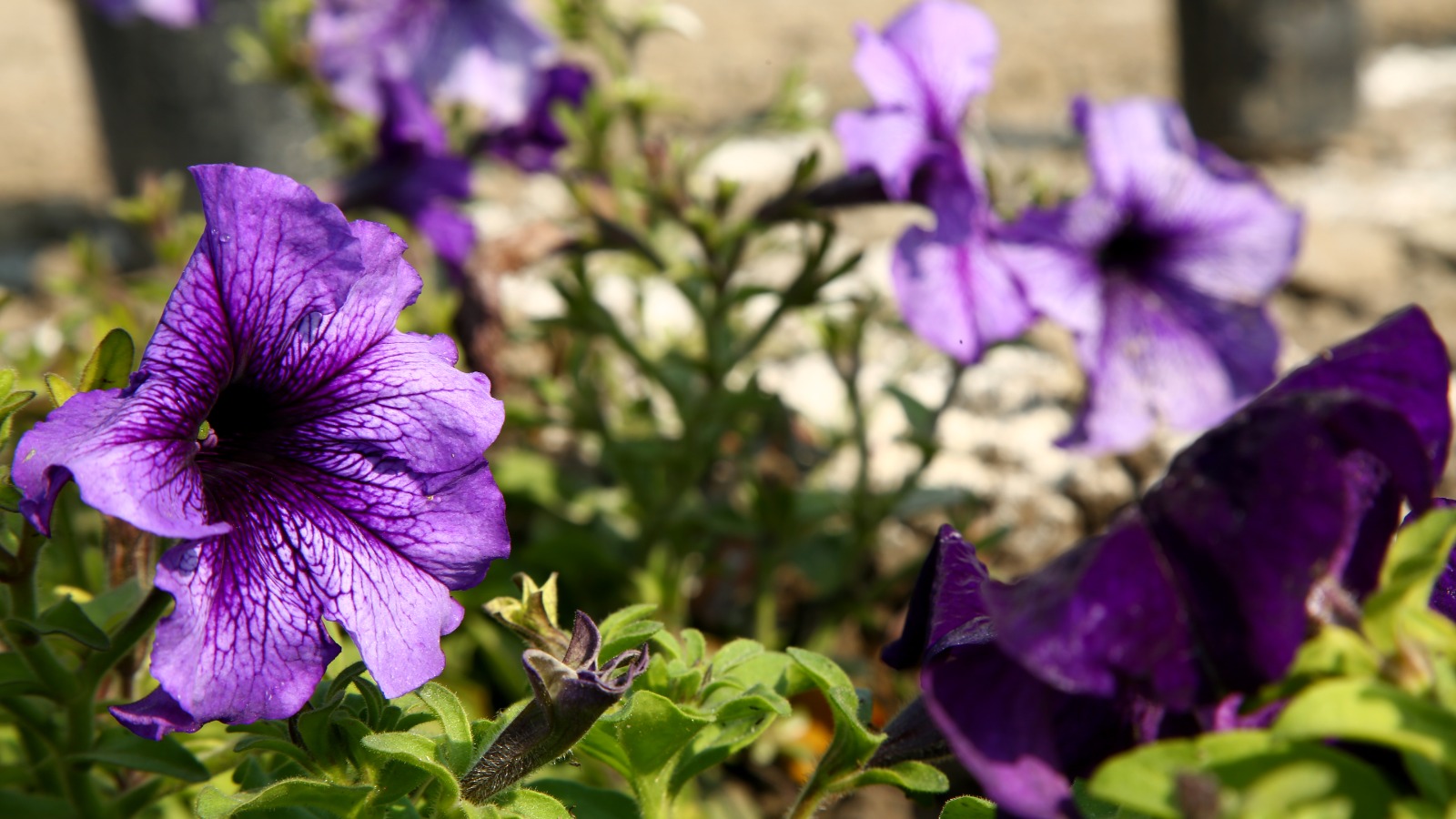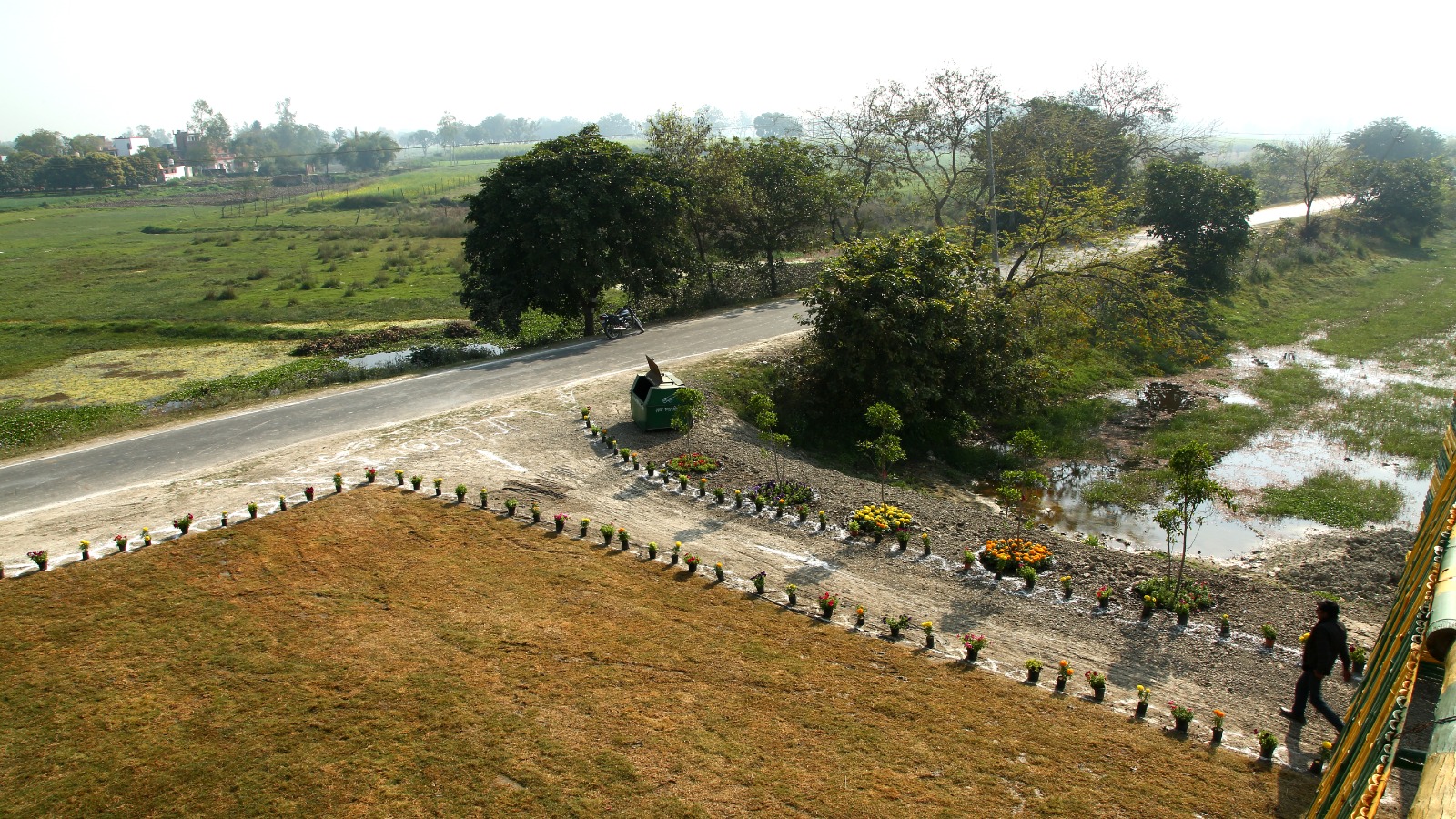
The restoration of water bodies in Ayodhya is a vital initiative aimed at enhancing environmental sustainability, improving air quality, and preserving biodiversity. Water bodies such as ponds, lakes, and rivers play a crucial role in maintaining the local water cycle, regulating groundwater levels, and supporting diverse ecosystems.
By restoring and revitalizing these water bodies, we not only contribute to the conservation of natural habitats but also create essential refuges for aquatic life. Healthy water bodies provide breeding grounds and habitats for fish, birds, and other wildlife, thereby enriching Ayodhya’s biodiversity.
Furthermore, the restoration of water bodies contributes to improving air quality by acting as natural filters. Aquatic plants and algae absorb pollutants and trap sediment, helping to cleanse the water and reduce the overall pollution load in surrounding areas. This, in turn, enhances the overall environmental quality and aesthetic appeal of Ayodhya’s urban landscape.
In Ayodhya, the development of urban green spaces stands at the forefront of our efforts to foster sustainability, enhance community well-being, and combat pollution. We are committed to creating parks, gardens, and green corridors that not only beautify our city but also serve as vital spaces for recreation, relaxation, and biodiversity conservation.
Our approach begins with the strategic planning and design of green spaces that integrate seamlessly into urban environments. These areas are carefully chosen to maximize their impact on local air quality, reduce heat island effects, and provide habitats for wildlife. By planting native trees and vegetation, we promote biodiversity and create natural habitats that support Ayodhya’s ecological health.
These green spaces are also designed with the community in mind, offering residents and visitors alike opportunities for leisure activities, outdoor exercise, and social interaction. They serve as oases of tranquility amidst urban hustle, contributing to mental and physical well-being.


Promoting eco-friendly practices is crucial in Ayodhya’s journey towards sustainability. We prioritize waste reduction, recycling, and the adoption of renewable energy through comprehensive educational programs and community-driven initiatives.
Our approach begins with raising awareness about the environmental impact of waste generation and the benefits of reducing consumption. Through educational programs in schools, workshops, and outreach campaigns, we empower residents to embrace sustainable lifestyles. This includes promoting practices such as composting, reducing single-use plastics, and smart consumption habits.
Recycling plays a pivotal role in our strategy, with efforts focused on establishing efficient recycling systems and facilities across Ayodhya. By encouraging segregation at the source and facilitating recycling programs for households, businesses, and public spaces, we aim to minimize waste sent to landfills and promote a circular economy.
In Ayodhya, our commitment to protecting biodiversity and ecosystems is central to our vision of creating a sustainable and resilient city. We prioritize native species planting, habitat creation for wildlife, and ecosystem protection to ensure balance and adaptability in the face of climate change. By focusing on native plants and trees adapted to local conditions, we enhance biodiversity and restore natural habitats essential for Ayodhya’s ecological health.
Our efforts extend to creating green corridors, wildlife sanctuaries, and protected areas that provide safe havens for Ayodhya’s diverse wildlife. Through sustainable practices and conservation initiatives, we aim to safeguard essential ecosystem services such as clean air, water filtration, and climate regulation. Community involvement and education are crucial components of our approach, fostering environmental awareness and encouraging active participation in conservation efforts.

